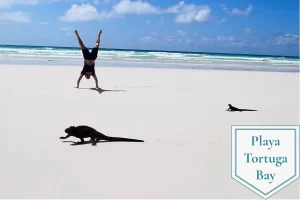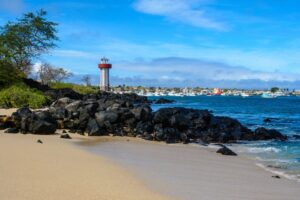Colombia, with its vibrant culture, diverse landscapes, and historic cities, is a must-visit destination in South America. As Responsible Travel, we present everything you need to know to plan a safe and enjoyable trip.
Entry and Exit Requirements
Entrance:
- Documents: Present a valid and current passport; this document must be accompanied by a visa if required by your nationality or the activity to be undertaken, an outbound travel ticket, and proof of financial solvency, as applicable. You must also have completed the migration pre-registration up to 72 hours before the trip or at least one hour prior to departure.
- Vaccines: The yellow fever vaccine is recommended for those visiting jungle areas such as the Amazon, the Sierra Nevada de Santa Marta, or the Eastern Plains.
Exit:
Have completed the migration pre-registration (Check-Mig) up to 72 hours before the trip or at least one hour prior to departure. Additionally, present the same travel document used to enter the country.
List of countries that require a visa to enter Colombia
Some nationalities may enter without a visa if they hold a valid visa from the United States, Canada, or the Schengen Area. However, citizens of the following countries require a visa to enter:
| Afghanistan | Angola | Arabia Saudita |
| Argelia | Armenia | Bahréin |
| Bangladesh | Benín | Bielorrusia |
| Botsuana | Burkina Faso | Cameroon |
| Chad | China | Comoras |
| Congo República democrática | Corea República popular democrática | Côte d'Ivoire |
| Cuba | Djibouti | Egypt |
| Eritrea | Ethiopia | Gabón |
| Gambia | Ghana | Guinea |
| Haiti | India | Iran |
| Iraq | Jordania | Kenia |
| Kirguistán | Kosovo | Laos |
| Líbano | Liberia | Libya |
| Macedonia | Madagascar | Malaysia |
| Malawi | Maldivas | Malí |
| Marruecos | Mauritania | Mozambique |
| Nepal | Nicaragua | Pakistan |
| Senegal | Sierra Leona | Syria |
| Seychelles | Somalia | Sri Lanka |
| Sudáfrica | Sudán del Sur | Sudán |
Language
The native language is Spanish, although in major cities and tourist areas some people speak English. At Responsible Travel, we are trained to provide the best experience for travelers. For this reason, our team of guides is bilingual, as are most of our providers (hotels and restaurants).
Time Zone
Colombia uses the UTC -5 time zone year-round, with no daylight saving time changes.
Currency
The official currency of Colombia is the Colombian peso (COP). It is easy to exchange U.S. dollars and euros at exchange houses and ATMs available in major cities. In addition, credit cards are accepted in urban and tourist areas, but it is always advisable to carry cash for expenses in markets and rural areas. It is common to leave a 10% tip in restaurants if it is not included in the bill.
Connectivity
Regarding connectivity, Wi-Fi is free in hotels, restaurants, and some cafes when making purchases. Keep in mind that in rural areas it may be a bit slow. Operators such as Claro, Tigo, and Movistar offer prepaid SIM cards with mobile data for tourists. Note that cellular signal is good in cities and main roads, but may be limited in mountainous areas and the Amazon.
Plugs and Adapters
In Colombia, Type A and Type B plugs and sockets are used, as the mains voltage is 110V at a frequency of 60 Hz.

We always recommend bringing your own adapter if you use a different type of plug or socket. However, Responsible Travel includes an adapter for each traveler from countries with European plugs as part of the welcome package.
Health and Safety
Vaccinations
It is recommended to consult your doctor about the following vaccines if you plan to travel to the Amazon:
- Diphtheria
- Hepatitis A
- Hepatitis B
- Rabies
- Tetanus
Important: If you plan to take a trip/expedition off the beaten path in the Ecuadorian jungle, we strongly recommend that you consider getting vaccinated against yellow fever with your doctor.
Insect-Borne Diseases
- Dengue, malaria y chikungunya: Present in warm and Amazonian areas, it is recommended to use repellent with DEET, and to wear long-sleeved clothing and mosquito nets.
- Leishmaniasis: In rural and jungle areas, it is recommended to avoid insect bites.
UV Rays and Altitude
- UV Rays: At high altitudes such as Bogota or the Sierra Nevada, sun exposure can be intense. We recommend using sunscreen, sunglasses, and hats.
- Altitude: Although not very common, some cities like Bogota (2,640 meters) may cause altitude sickness. Rest, stay well hydrated, and avoid intense activities during the first few days.
Healthcare System
Colombia has a well-developed healthcare system, with high-quality clinics and hospitals in major cities such as Bogota, Medellin, and Cali. Facilities in rural areas may be limited. It is essential to have travel insurance that covers medical emergencies, especially if planning high-risk activities, as private services can be expensive. Pharmacies are available throughout the country and are well stocked.
Emergency Numbers:
- General emergencies: 123
- National Police: 112
- Ambulance Emergencies: 125
- Fire Department: 119





